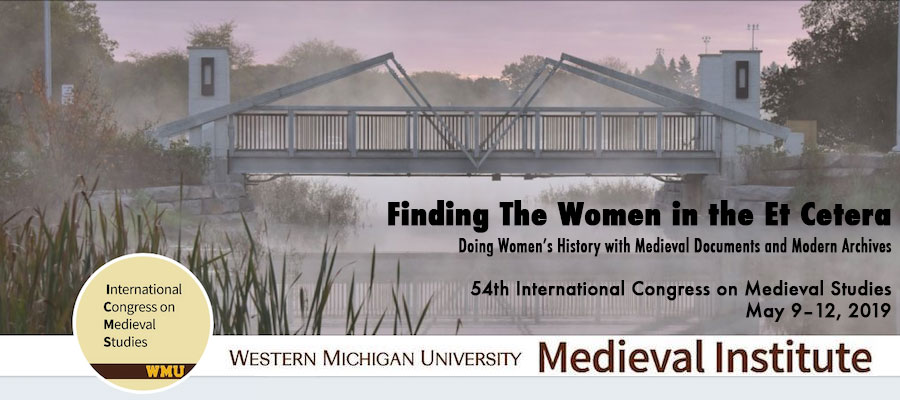Finding The Women in the Et Cetera: Doing Women’s History with Medieval Documents and Modern Archives, session at the 54th International Congress on Medieval Studies, Western Michigan University, May 9–12, 2019
Over the last forty years, historians have established unambiguously that women were active participants in medieval society, that they were capable of wielding political power and social influence, and that they forged religious and economic ways of life that were innovative, creative, and adaptable. This work has been built to a large degree on a careful (re)reading of the medieval sources, and a greater—if still imperfect—use of sources from outside of northwestern Europe. Scholars have drawn on charters and cartularies in order to reevaluate our understanding of women’s power and agency in the Middle Ages. However, such work is inevitably shaped by source survival, by the institutions which preserve those sources, and by the ways in which archival material is categorised, classified, and made available to researchers—or not.
This panel will create a space for historians to reflect on what it means to do women’s history with tools and in spaces that were designed to privilege men and their voices, and to make visible the accreted layers of assumptions surrounding archival materials and the ways medieval women are present within them. We would like to further contribute to the ongoing scholarly conversation about archival theory by considering how the construction and use of archives is a gendered affair, and how that specifically affects the practice of medieval women’s history.
Topics of consideration include but are not limited to:
- How women’s historians navigate archives
- The influence which finding aids and inventories exert on the practice of medieval women’s histories
- Challenges/opportunities of using such inventories/archives to do the history of Jewish women, Muslim women, “lesbian-like” women and others
- Technological innovations and new horizons
The panel aims to explore how doing the history of medieval women is to a great extent the engagement with the history of the profession as a whole, and to demonstrate that the presence of medieval women in the archives is not a static thing, either in physical reality or in conceptualization.
Session Organizer
Yvonne Seale, SUNY Geneseo
